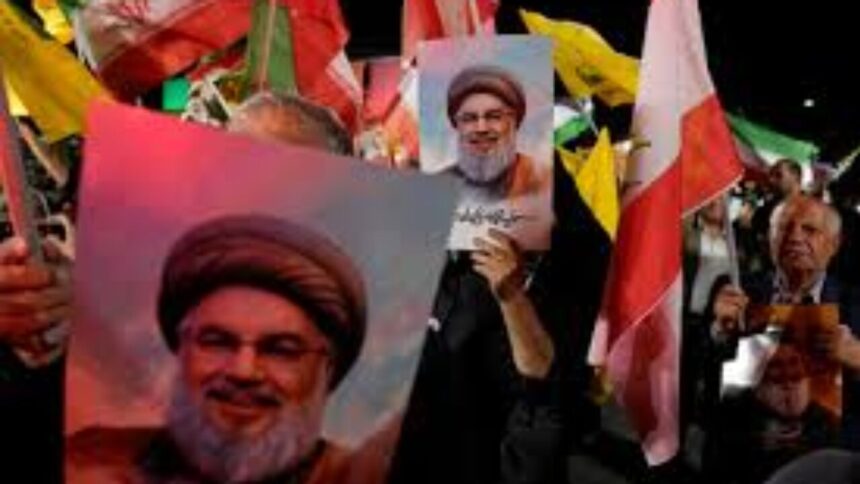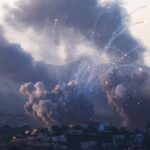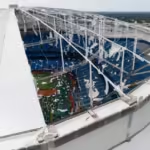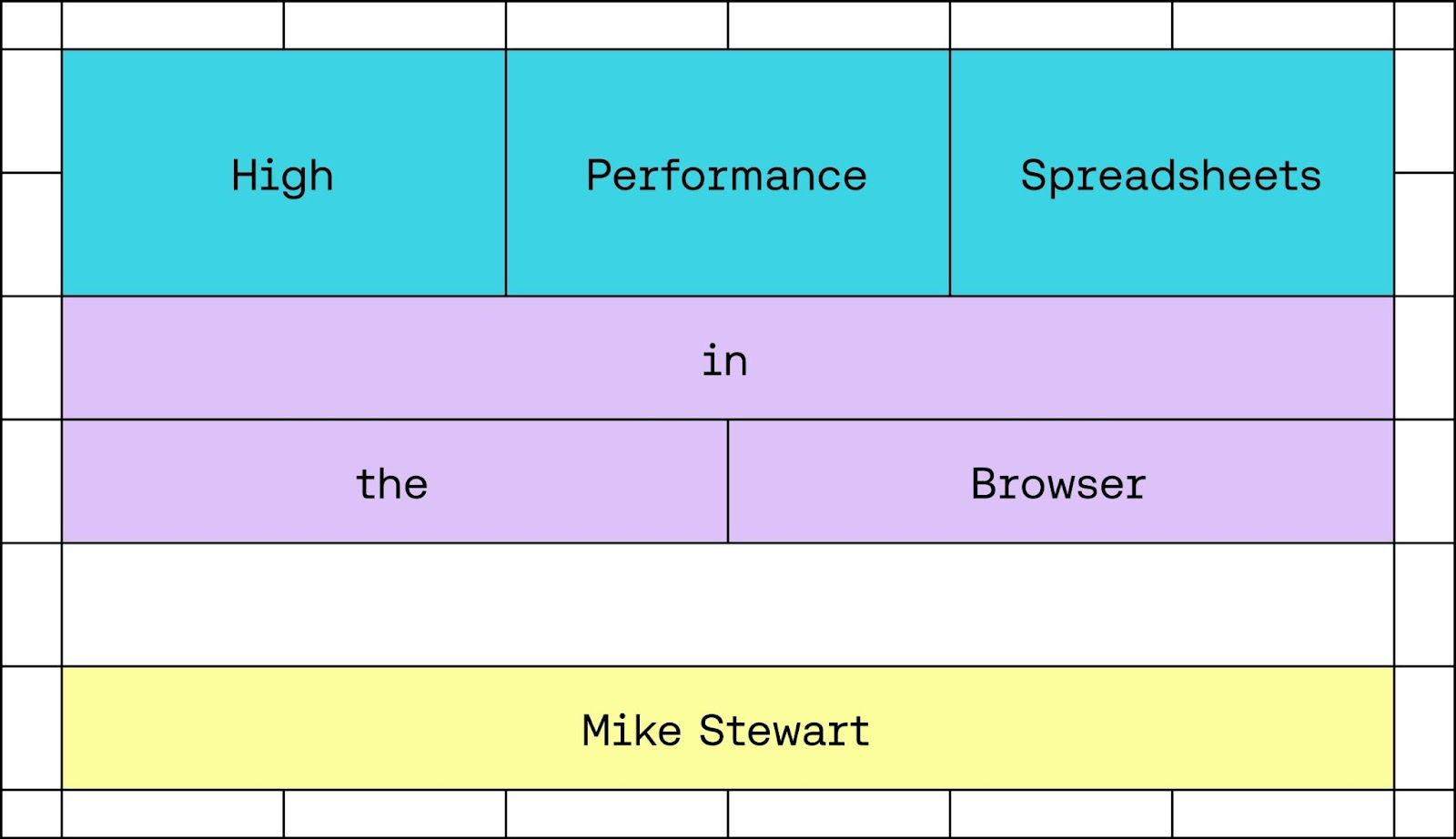The secretive temporary burial of Hezbollah’s leader, Hassan Nasrallah, underscores the volatile security situation between Hezbollah and Israel. After his death in an Israeli airstrike, Nasrallah’s funeral has been delayed, with Hezbollah opting for a temporary burial to avoid further Israeli attacks on a public ceremony. This move highlights the growing tensions in the region and reflects Hezbollah’s need to safeguard its leadership and supporters during this precarious time.
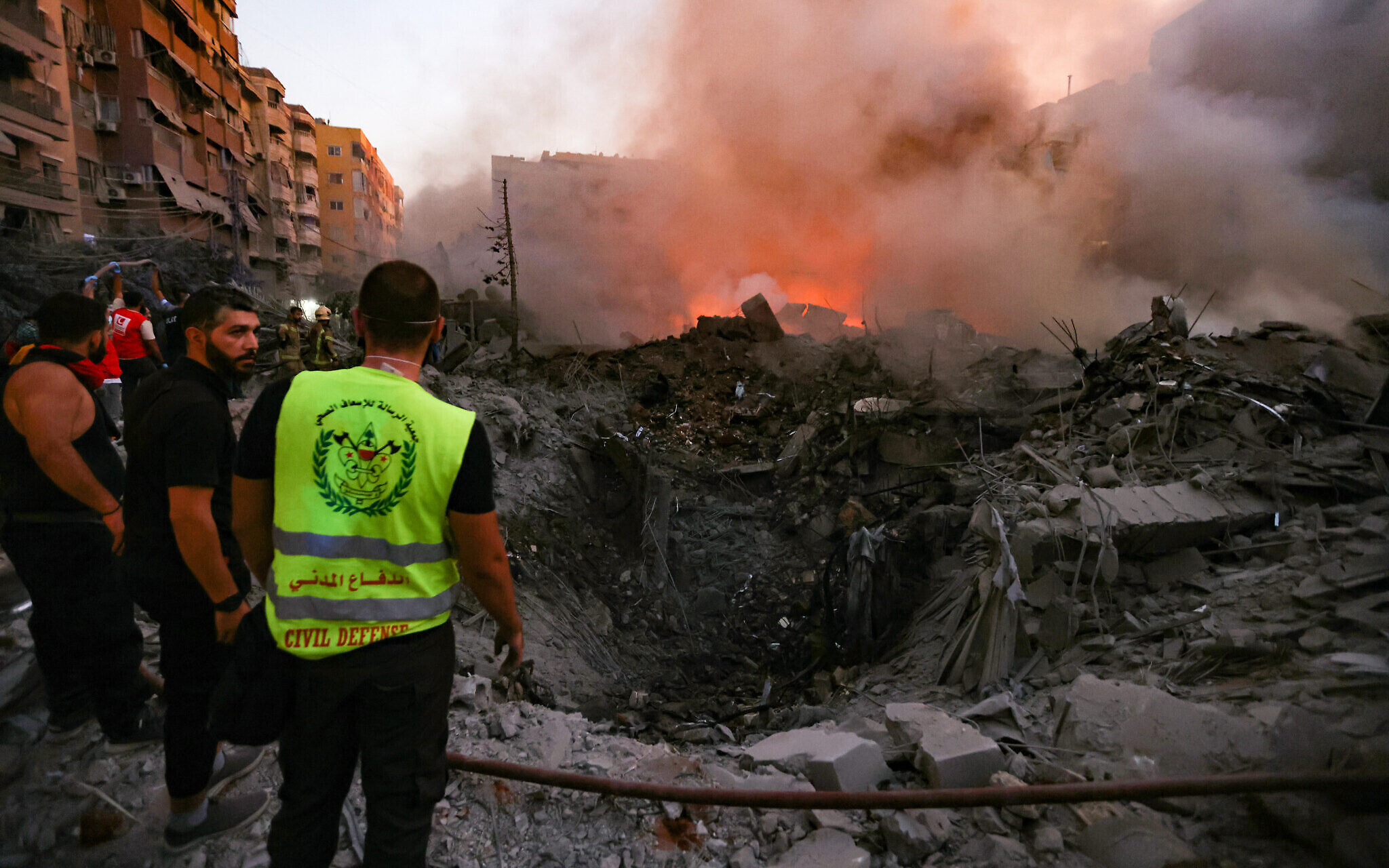
Nasrallah’s Death and Immediate Aftermath:
Hassan Nasrallah was killed in a targeted Israeli airstrike in the southern suburbs of Beirut, a region that has long been a Hezbollah stronghold. His death was a significant blow to Hezbollah, as Nasrallah had been the face of the organization for years, leading it through key moments of conflict with Israel. Alongside Nasrallah, several high-ranking Hezbollah members, including Iranian General Abbas Nilforoushan, were also killed.
The announcement of Nasrallah’s death led to a wave of mourning among Hezbollah supporters, with immediate speculation surrounding Nasrallah’s funeral. However, security concerns quickly emerged, prompting Hezbollah to take an unprecedented step by temporarily burying Nasrallah in a secret location. According to sources close to Hezbollah, the organization feared that Israel might strike during Nasrallah’s funeral, targeting not only Hezbollah’s leadership but also the large crowds expected to attend.
Temporary Burial Due to Security Fears:
The decision to delay Nasrallah’s funeral and opt for a temporary burial stems from the ongoing Israeli military operations in Lebanon. Israeli airstrikes have continued to target Hezbollah positions, and intelligence suggested that Israel might use Nasrallah’s funeral as an opportunity to strike again. Hezbollah had hoped to hold a public funeral on Friday, but persistent Israeli threats made it impossible to proceed safely. As a result, Hezbollah opted to bury Nasrallah in a secret location, with plans for a public funeral once the security situation stabilizes.
Muslim burial customs typically require a swift burial of the deceased. However, religious scholars confirmed that Islamic law allows for temporary burials in exceptional cases, such as in times of war or security concerns. This move, while unusual, has historical precedents, and it underscores the seriousness of the threat Hezbollah believes it faces from Israel. The fear of an Israeli strike targeting Nasrallah’s funeral illustrates the depth of the conflict between the two sides.
The Significance of Nasrallah’s Funeral:
Nasrallah’s funeral is not just a ceremonial event; it is a momentous occasion in the broader political and military landscape of Lebanon and the Middle East. Hezbollah is not only a militia but also a political movement with substantial influence in Lebanon, and Nasrallah’s funeral is expected to attract attention from across the Shia Muslim world, especially from Iran and Iraq. However, the potential for violence during such a high-profile event makes it a risky proposition. Hezbollah is not taking any chances, given the potential for Israeli strikes on the gathering.
The timing and location of Nasrallah’s funeral are of crucial importance. Holding a public event too soon could provoke an Israeli attack, especially given Israel’s history of targeting Hezbollah leadership during times of heightened tension. In recent months, Israeli airstrikes have intensified, focusing on Hezbollah’s military infrastructure in southern Lebanon, raising concerns that Nasrallah’s funeral could be the next target.
Iran’s Reaction and Support:
Iran, Hezbollah’s closest ally, has been closely monitoring the situation surrounding Nasrallah’s funeral. Following his death, Iranian leaders, including Ayatollah Ali Khamenei, paid tribute to Nasrallah, emphasizing that his death would not weaken Hezbollah’s resolve. At a memorial service in Tehran, Khamenei vowed that Israel would not be victorious in its efforts to weaken Hezbollah and that Iran would continue to support the group’s resistance efforts.
Iranian leaders have framed Nasrallah’s death as a martyrdom, a concept that resonates deeply within the Shia Muslim world. While Nasrallah’s funeral has been delayed, Iran’s involvement in ensuring the security of the event and bolstering Hezbollah’s morale has been critical. Iran’s Revolutionary Guards are closely aligned with Hezbollah, and General Abbas Nilforoushan, who was killed alongside Nasrallah, was a key figure in maintaining this connection.

The Uncertain Leadership Succession:
With Nasrallah gone, the future of Hezbollah’s leadership remains uncertain. Although no official successor has been named, speculation has centered around Hashem Safieddine, Nasrallah’s cousin and a senior figure within the organization. Safieddine is known for his close ties to Iran and is considered a strong contender to take over as Hezbollah’s Secretary-General. However, the delay in naming a successor may be a strategic move, allowing Hezbollah time to regroup and reassess its leadership structure in the wake of Nasrallah’s death.
The question of leadership succession will be critical for Hezbollah’s future, especially as the group navigates its relationship with Israel and other regional powers. Nasrallah’s successor will have to manage Hezbollah’s complex political position in Lebanon, its military capabilities, and its relationship with Iran. How Nasrallah’s funeral and the leadership transition are handled will be closely watched by both Hezbollah’s allies and its adversaries.
Lebanon’s Fragile Political Landscape:
The postponement of Nasrallah’s funeral also reflects the fragile political landscape in Lebanon. The country is grappling with a severe economic crisis, political instability, and the threat of renewed conflict with Israel. Hezbollah, as both a political and military force, plays a central role in Lebanon’s politics, and Nasrallah’s death adds another layer of complexity to an already volatile situation.
The Israeli airstrikes targeting Hezbollah strongholds are part of a broader strategy to diminish Hezbollah’s military power. However, Hezbollah’s response, including the decision to delay Nasrallah’s funeral, shows that the organization is preparing for the long game. By avoiding a high-profile public funeral, Hezbollah aims to prevent further escalation while maintaining its influence in Lebanon and its relationships with regional powers like Iran.
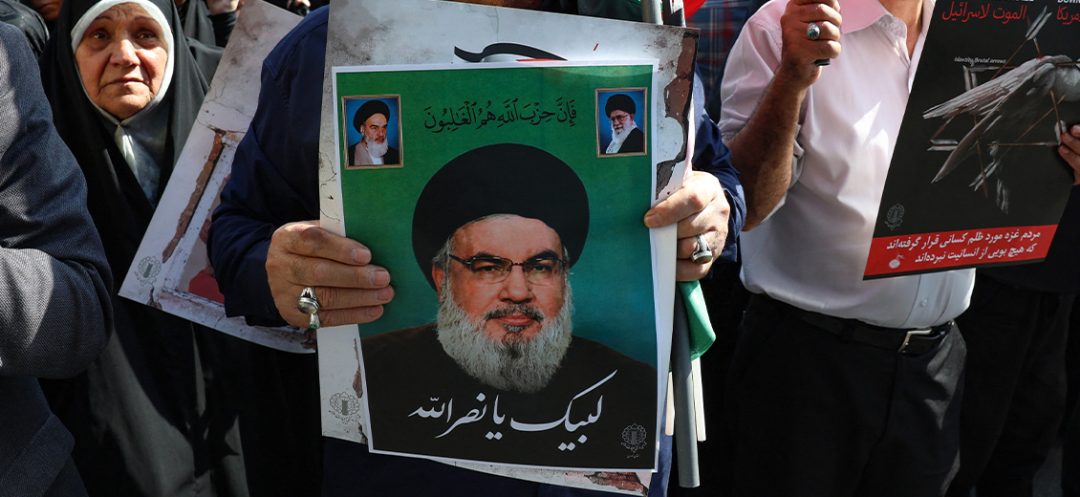
Conclusion:
Nasrallah’s funeral is more than just a symbolic event; it is a critical moment in the ongoing conflict between Hezbollah and Israel. The decision to delay the funeral and temporarily bury Nasrallah in a secret location speaks to the seriousness of the security threats Hezbollah faces. As tensions continue to rise in the region, the eventual public funeral for Nasrallah will likely be a major flashpoint in the ongoing conflict between Israel and Hezbollah.
The future of Hezbollah, including its leadership succession and its role in Lebanon’s political and military landscape, remains uncertain. However, one thing is clear: Nasrallah’s funeral, whenever it happens, will be a defining moment for Hezbollah, Lebanon, and the broader Middle East. Whether it leads to further violence or serves as a rallying point for Hezbollah’s supporters will depend on how the situation unfolds in the coming weeks.


